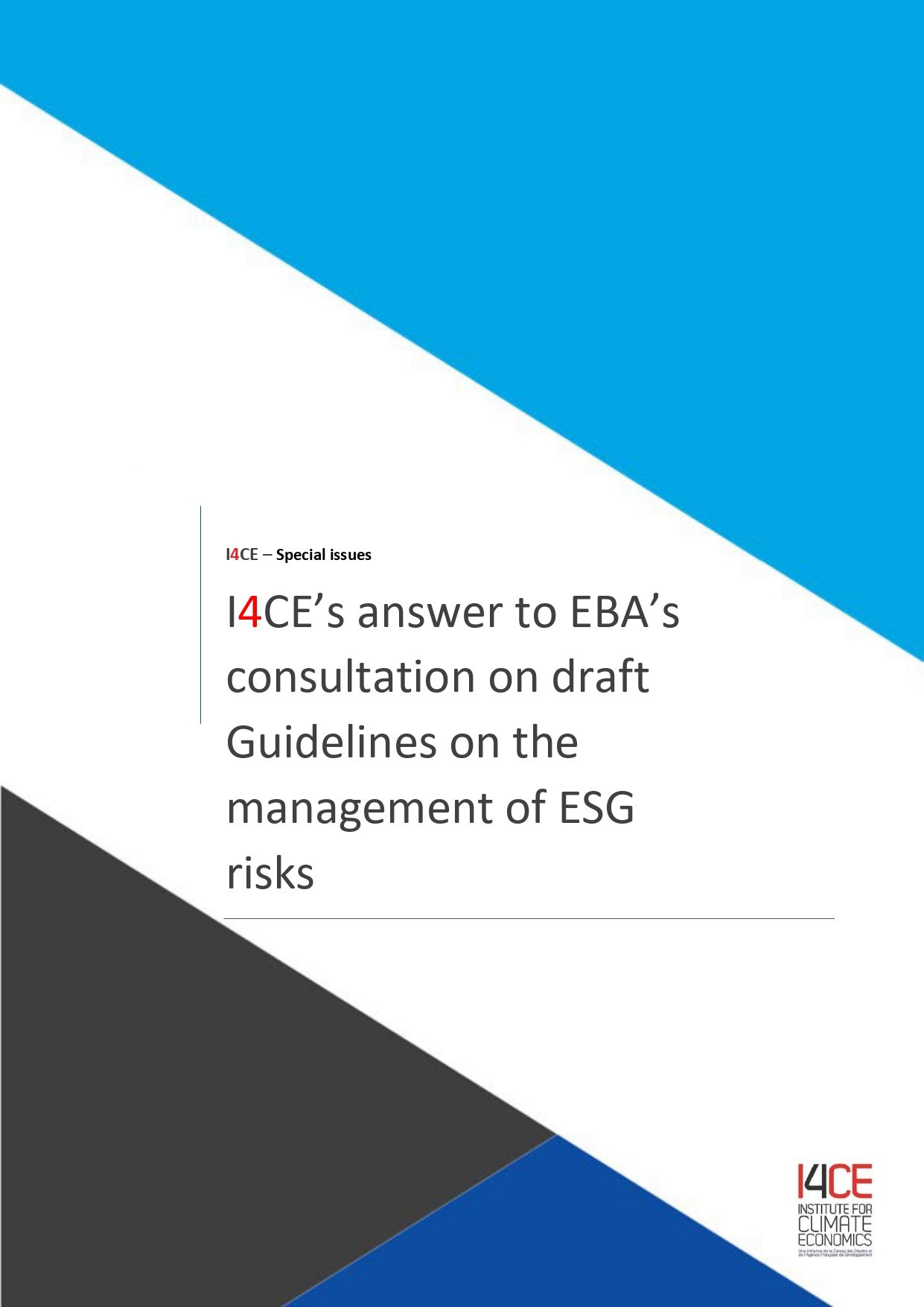I4CE’s recommendations to the European Banking Authority on prudential transition plans
The European Banking Authority (EBA) is clarifying how the banks should frame their “transition plan” as required by the EU prudential regulation. The transition plan is the bank’s strategic roadmap to prepare for the transition to a sustainable economy as framed by the jurisdictions they operate in, including an EU climate-neutral economy. It has been introduced in several EU regulatory frameworks, including as a disclosure requirement arising from the CSRD. The prudential framework and the EBA are focusing on a specific angle: how the banks plan to manage their financial risks related to the transition. EBA’s framing of these plans will be key to determine whether the banks will manage their financial risks consistently with the broader need of financing the transition to a low-carbon economy.
The public consultation paper released in January 2024 sets out guidelines on the management of sustainability risks, including through plans aimed at addressing the risks arising from the transition towards an EU climate-neutral economy. I4CE addressed its comments to the EBA building on its long-term work on climate-related risk assessment and on how to integrate climate and transition issues within Pillar 2 regulation.
The Institute for Climate Economics (I4CE) strongly supports EBA’s guidelines and welcomes this initiative. The approach to integrate ESG risks and transition planning within pillar 2 is critical for the financial stability and the safety and soundness of the banks.
I4CE recommends strengthening the guidelines on transition plans to ensure a comprehensive definition. The EBA should opt for a broader understanding of the CRD-based plans to recognize better the need to mobilize banks for achieving climate neutrality in 2050; this way the prudential transition plans would be consistent with the CSRD.
Transition finance is a core necessity from a general prudential perspective. The ECB and ESRB clarified that transition finance is necessary to mitigate the potentially uncontrollable climate impacts that pose the most serious threats to financial stability. It is also true that transition finance raises risk taking concerns per se at the level of individual banks, and that this needs to be monitored. However, it is also necessary to ensure at least that individually the bank is not slowing down the transition only due to a lack of ambition.
There are many ways by which a bank’s climate risk management approaches might discourage it from participating in transition finance. I4CE acknowledges that the overall text of the present EBA guidelines is making legitimate efforts to leverage the capacity of the banks’ risk management approach to finance the transition. For example, it emphasizes the strategic risk arising from misalignment, the need to look at the short to the long term, the possibility for banks to engage with counterparties on their transition capacity. However, there could still be possibilities that the banks counteract the need for transition finance through their risk management approach.
Hence it is necessary for the EBA to clarify in its interpretation of the CRD that the banks are expected to develop a strategic perspective on capturing and supporting the opportunities that will arise in the transition, consistently with requirements from EU legal frameworks, but also in order to mitigate the long-term risks arising from a lack of climate action. In this context, the banks are expected to develop risk management strategies and plans that help foster the transition, making the best use of their own risk-taking capacity, and they are expected to avoid the risk management strategies that are counterproductive to this end. This would be consistent with CRD’s recital (31).

